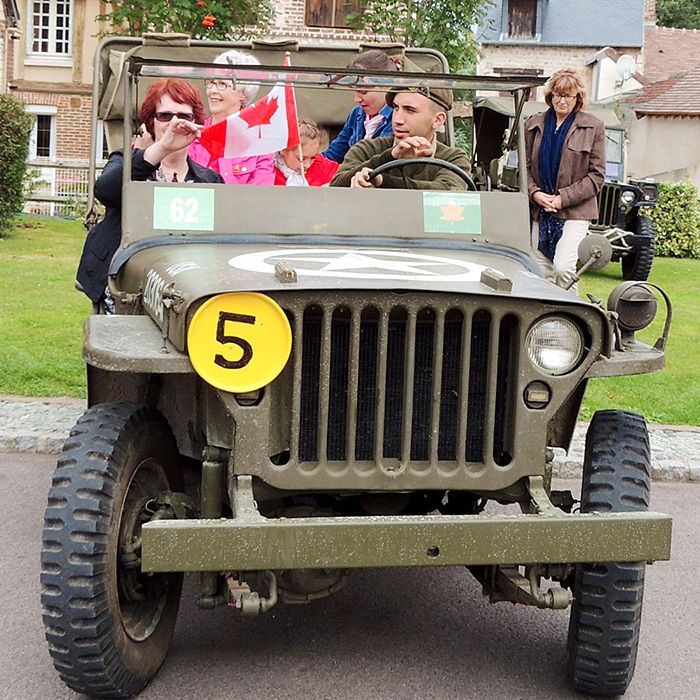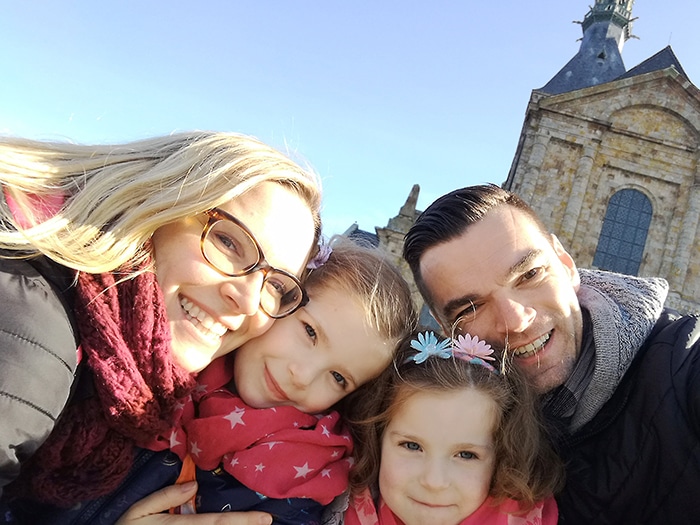
The leadership and actions of a Chatham-Kent man decades ago has helped forged a lasting friendship between his descendants and residents of a small French village.
In August of 1944, Maj. Keith Crummer of Chatham and his company became the first Allied soldiers to cross the Seine River during the Second World War. It was at a small French town named Criquebeuf-sur-Seine, and the men had to use their trench shovels as oars after finding an abandoned rowboat.
Criquebeuf lies in a gentle bend in the Seine River, south of Rouen, about an hour’s drive from Paris.
Members of the major’s family will head overseas later this summer to celebrate the 75th
anniversary of Crummer and the Lincoln and Welland Regiment’s feat, and to connect with an extended family of sorts – the people of Criquebeuf.
Diane Teetzel, one of Keith’s daughters, said a large contingent of his descendants, as well as other family members, will travel. In total, 27 plan to make the trip, 19 of which are from North America, while another eight are actually in France.
“It will be the largest family-related get-together that we’ve ever had,” she said.
And it will take place across the Atlantic Ocean.
Teetzel said there will be moving and memorable celebrations and events, including mass in a church where 60 people had been held hostage as Crummer and his troops approached the village 75 years ago.
There will be a military vehicle parade through the village, according to one organizer, Damien Belliere, reached via Skype, and the festivities will culminate in the dedication of a bridge in Crummer’s name.
Belliere anticipates upwards of 1,000 people will be on hand. That would constitute most of the village, which has a population of fewer than 1,400 people.
Teetzel said most of her family members will stay with families in the village, something she finds incredible.
“They are putting 25 of us in houses in Criquebeuf. This is all about the loving caring and wonderful remembrance for the Canadian soldiers,” she said. “It was Dad’s battalion that came into the town first.”
While Crummer’s first exposure to Criquebeuf took place during the Second World War, it was a visit in the 1970s that cemented his place in the village’s history.
Teetzel said her father went back with his wife, Fran, in 1975 to visit the gravesites of some of Keith’s fallen comrades.
“He was the only soldier to go back. He received a letter from the mayor at the time,” she said.
That letter said it was a great honour to have met Crummer, and that the municipality of Criquebeuf remembered the Canadian troops.
Teetzel said her father responded to the mayor, downplaying his role in 1944.
“I know you will give full credit to the Lincoln and Welland regiment and the many Canadian and Allied soldiers who died along the banks of the Seine during those fateful days and nights in August 1944. No one individual can lay claim to the liberation of Criquebeuf; it belongs to the soldiers and brave citizens of the town,” he wrote.
Teetzel said the French countryside around Criquebeuf is quite similar to that of Chatham-Kent.
In many ways, it couldn’t have looked that different 75 years ago, as it hadn’t suffered from Allied bombing, when Crummer and his “D” Company soldiers of the Lincoln and Welland Regiment first looked up on it. Little did the major know, but their arrival, or news of it, helped prevent a mass murder.
The Germans had rounded up about 60 citizens and locked them in the church. The plan was to gun them all down and burn the church to the ground.
As a result, the Canadian liberators are revered in Criquebeuf.
In the 1975 document, then Mayor Y. Legourd shed some light on exactly what transpired.
“Mr. Commander, you and your brave soldiers have left in the hearts of all the dwellers of Criquebeuf-sur-Seine a souvenir and an imperishable friendship,” the letter said. “The friendship is especially dear in the hearts of those 60 hostages which the enemy had locked in the church, all to be shot.”
Teetzel said one woman who spoke German saved the residents. She successfully encouraged the Germans to just leave.
“I consider her the heroine of Criquebeuf,” she said.
The woman, Anna Fleck, spent about 45 minutes convincing the senior German officer to not shoot the hostages and burn the church, because the Allies were coming.
The Germans packed up and retreated in short order, gone by noon on Aug. 24, 1944, without an Allied soldier in sight.
It turns out Crummer and advance elements of the Lincoln and Wellington Regiment to which he was attached were on high ground overlooking the town at that time, Teetzel said.
“A great relief for the population, the Germans have finally gone! And it was your arrival which brought joy to all the citizens,” the 1975 letter proclaimed to Crummer.
That letter for years hung in the Crummer family home back in Chatham. It was in 2014 when Teetzel reached out to the people of Criquebeuf to learn more.
“I called the town hall in 2014 and reached Damien. They were having a party and asked if we could come,” she said. “Joan (Crummer-Roland, another daughter of Crummer’s) and I had four days to get everything together.”
They were glad they did.
“We were met by Damien and his brother-in-law who was wrapped up in a Canadian flag,” Teetzel recalled when the sisters cleared customs in Paris. “They couldn’t believe we showed up for the party.”
The sisters left in awe, overwhelmed by the appreciation and hospitality of the host town and host family, and humbled to learn their father was held in such reverence there.

Now, five years later, the two sisters are bringing even more relatives.
Jane Parry, another of Teetzel’s sisters, is also going, along with her daughter and granddaughter. She anticipates “a heck of a party,” while at the same time enjoying the hospitality of the people of Criquebeuf and their expression of appreciation for the actions of her father 75 years ago.
“It’s for our father and we’re really excited about this, but it’s not about one man,” she said.
Teetzel said she’s also excited to bring her family and the people of Criquebeuf together.
“We’re having a huge family reunion of Canadian, U.S. and French family members, and it’s a chance to introduce them all to the family of Criquebeuf,” she said. “I get emotional because I have been made part of this family. If I hadn’t made that phone call…friendships take a lot of work.”
Maj. Keith Crummer may have left a lasting impression on the people of Criquebeuf many years ago, but today, the warmth and compassion of the villagers are leaving the impression with his family.






